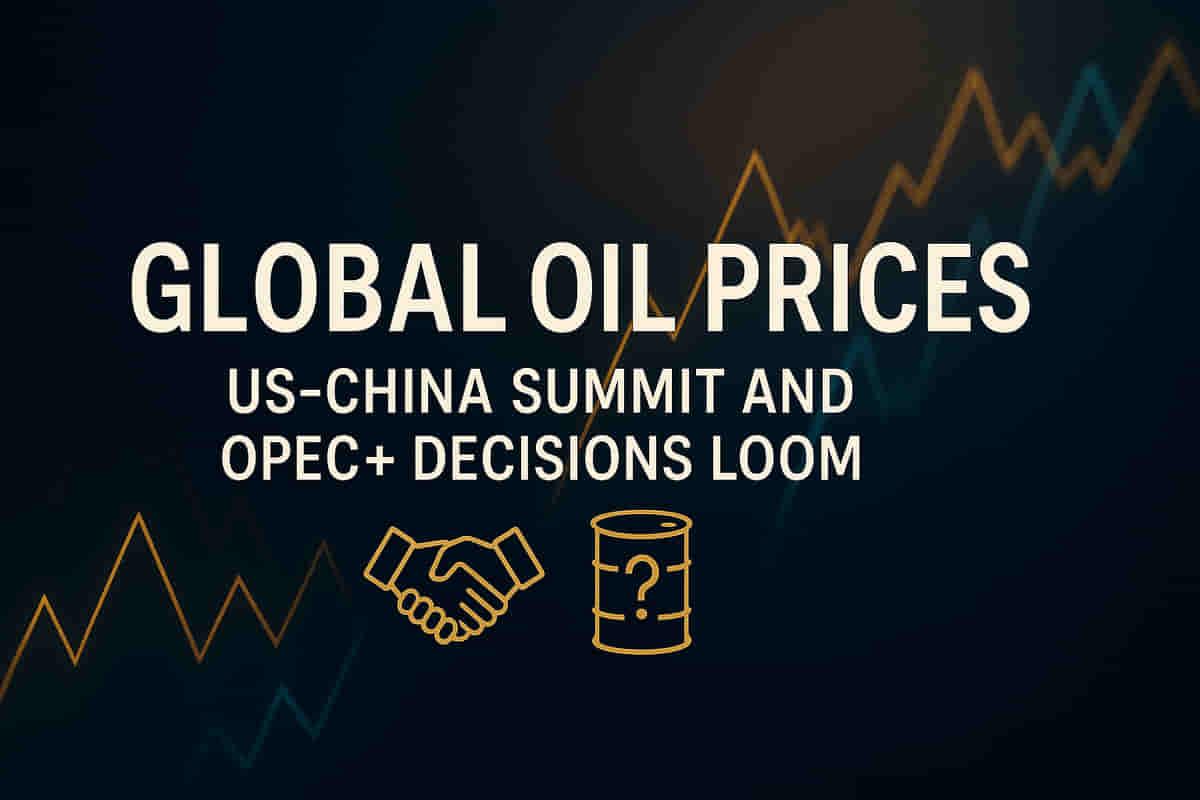Oil Prices Steady Ahead of Crucial US-China Summit and OPEC+ Supply Talks
Energy
|
30th October 2025, 1:04 AM

▶
Short Description :
Detailed Coverage :
Oil prices have stabilized as investors focus on upcoming key events: a summit between United States President Donald Trump and Chinese President Xi Jinping in South Korea, and a crucial OPEC+ meeting concerning oil supply. The meeting between President Trump and President Xi is anticipated to lead to a trade deal, potentially involving the reduction of tariffs and other trade barriers. President Trump may also discuss with Beijing China's oil purchases from Russia, especially following sanctions on Russian producers.
OPEC+, meanwhile, has a meeting on supply on November 2. The focus will be on production levels, with expectations that further supply increases could be agreed upon, potentially intensifying worries about a global oil glut. Crude oil is heading for its third consecutive monthly decline, the longest losing streak since last year, as anticipated supply increases from OPEC+ and other producers are projected to outpace demand. The International Energy Agency has previously warned of a record surplus by 2026.
These developments significantly influence global energy prices, inflation rates, and overall economic sentiment. Geopolitical stability and supply management decisions by major producers are critical drivers for the oil market. A trade agreement could boost global economic activity, while increased oil supply could depress prices.
Impact: 7/10
Difficult Terms: OPEC+: An alliance of oil-producing countries that includes the Organization of the Petroleum Exporting Countries (OPEC) and several non-OPEC countries like Russia. They coordinate oil production policies to influence global prices. Brent / West Texas Intermediate (WTI): These are two major benchmarks for crude oil pricing. Brent crude is sourced from oil fields in the North Sea and is used as a global benchmark. West Texas Intermediate (WTI) is a grade of crude oil used in US refineries and is a benchmark for US oil prices. Tariffs: Taxes imposed by governments on imported goods. Export curbs: Restrictions placed on the amount or type of goods that can be sent to other countries. OPEC+ Meeting on supply: A meeting where OPEC+ members discuss and decide how much oil they will collectively produce. This decision affects the global supply and, consequently, prices. Global glut: A situation where the supply of a commodity, like oil, significantly exceeds the demand for it, leading to lower prices. Sanctions: Penalties imposed by one country on another, often related to trade or financial activities, to exert political pressure.